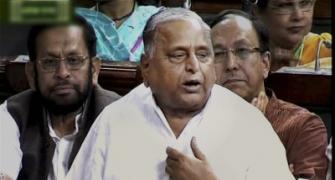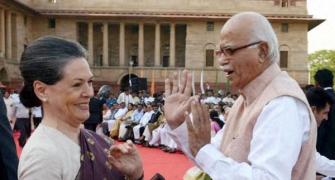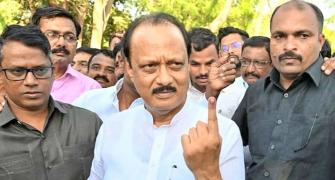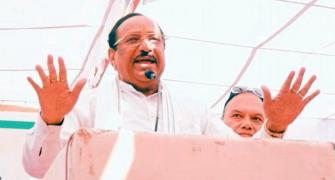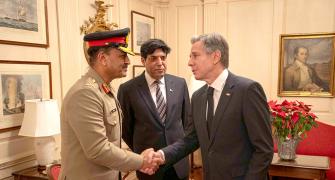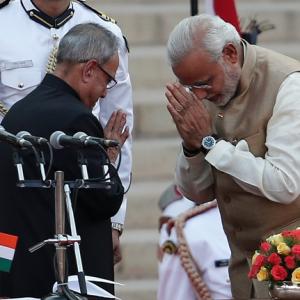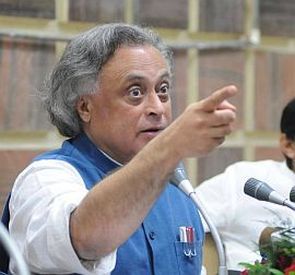 Accusing the ruling Bharatiya Janata Party of having "reaped benefits" of communal polarisation in the Lok Sabha elections, the Congress on Wednesday said the government should now focus on good governance and deliver on promises.
Accusing the ruling Bharatiya Janata Party of having "reaped benefits" of communal polarisation in the Lok Sabha elections, the Congress on Wednesday said the government should now focus on good governance and deliver on promises.
Resuming the debate in Rajya Sabha on Motion of Thanks on President's Address, senior Congress leader Jairam Ramesh said there was a "deliberate" communal polarisation on the ground by the "party which is in power" and it did not win the elections just on the plank of development. He hoped that after BJP "reaped benefits" of communal polarisation, the government will now "focus on good governance". The former minister said he was disappointed that the President's address did not talk about the works being done by the previous United Progressive Alliance government in the past 10 years.
Ramesh claimed there were "momentous changes" during the 10-year UPA regime and 140 million people had "escaped trap of poverty". "We (Congress) became victim of our own success," Ramesh said, adding a large number of programmes mentioned in the President address was continuation of UPA policies.
Ramesh wanted to know meaning of slogans such as 'minimum government, maximum governance' and 'Ek Bharat, shrestha Bharat (united India, best India)' and said he hoped 'minimum government' does not mean one-man government, one-office government.
Referring to Goods and Services Tax (GST), he said the bill could not be taken up by the previous government due to opposition of certain people who are now in government. He, however, assured the Congress’s support to the government is passing the GST Bill.
Sukhendu Sekhar Roy (Trinamool Cong) said any attempt by the government to digress from pro-people policies would be opposed tooth and nail. He, however, assured full cooperation to the Modi government, but warned it "to be cautious in its quest to succeed".
He said it is the duty of the new government to revisit and relook at the major economic reforms keeping in mind the poor, as according to latest World Bank report one-third of the world's 1.2 billion 'poorest of the poor' which translated to 40 crore people in India.
At the same time, he stressed equal sharing of resources between the Centre and states saying "Finance Commission is the only constitutional authority to look into it" but over the years "the Planning Commission, set up by an executive order, has become the most robust extra-constitutional authority".
Justifying GST, he demanded an assurance from new government that compensation of tax arrears will be paid to states before its implementation. He also demanded expediting implementation of Amritsar-Kolkata industrial corridor saying it will benefit seven states -- West Bengal, Punjab, Haryana, Uttar Pradesh, Uttarakhand, Bihar and Jharkhand.
Welcoming steps to bring back black money, Roy asked as to what the government was doing to inquiries by Income-Tax in connection with 498 Indian entities operating from tax havens like British Virgin islands.
He cautioned the new government that it should ensure that its Ganga Plan was carried out meticulously unlike the past when the funds were siphoned off by the contractors and also wanted to know the fate of institutions such as the Defence Research and Development Organisation.
Chandan Mitra (BJP) said it was wrong to say that this government has copied its ideas from the United Progressive Alliance government and added that Modi government is determined to translate the dreams of common Indians into reality.


